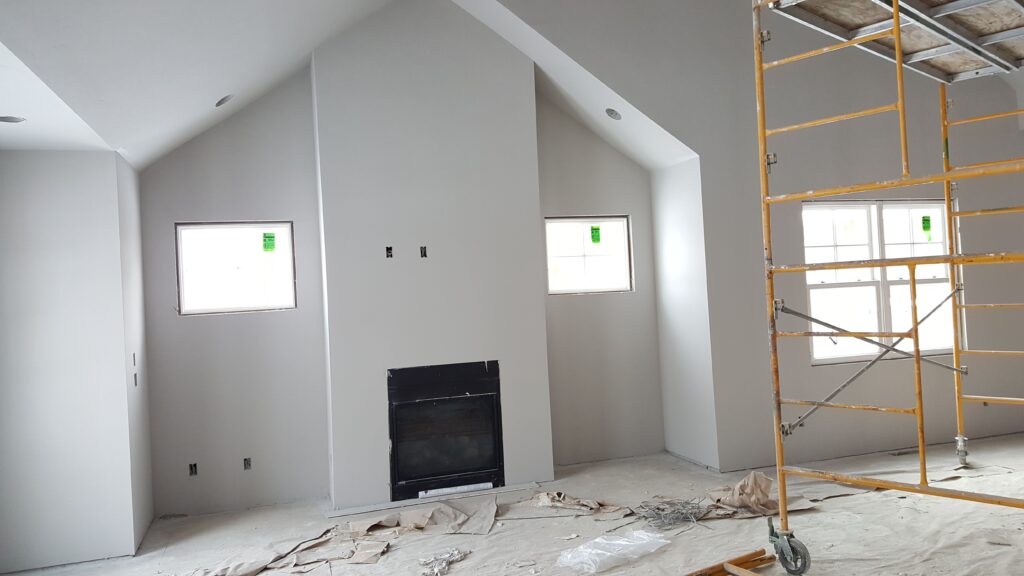If you’ve homeschooled your child even a short time, you know that it doesn’t just magically happen. You need to have a plan to cover all the subjects, curriculum or resources, a space to sit down, supplies…but WHEN does all this amazing learning happen when you are a busy mom running a busy home?
Never fear my friend, you have questions and I have answers. Or at least, a helpful starting point! Let’s talk about homeschooling consistently so you can feel good at the end of the year and your kids can benefit from learning efficiently and effectively.
4 Steps to success in consistently homeschooling:

Plan the year
Get out your calendar ladies and let’s do some macro planning!
Consider:
How many weeks you want to homeschool (or how many days)?
How many weeks of vacation does your family have?
How many weeks do you want for Christmas break?
How many for Easter break?
Any other breaks?
Any events that will cause a break from homeschooling (like a wedding or travel)?
When do you want to start? August? October?
When do you want to end? May? June?
All these things need to be balanced out so you can create your calendar for the year. With some give and take, you can accommodate the most important priorities above and know when you start, when you end, and when all the vacations will occur.
Now you have the framework for your school year!

Plan the month
Next, let’s talk about planning your month. This is the next step in dialing in your homeschool day and cultivating consistency. This would be done before the start of the month but not so far ahead that nothing is scheduled yet (appointments etc.).
Consider:
What appointments do you have during the month (doctor, dentist, etc.)? Will they interfere with some of your school days?
Are there any field trips happening in the month? (Field trips count for school but daily schoolwork would be deferred.)
Do you go to co-op each week?
Anything else happening during the month which would prevent a school day?
Circle all the days that your normal daily routine will not happen. Any days that will have a partial interruption or need a modified schedule can be marked with a check (or symbol of your choice).
I am not in favor of “making up” a homeschool day, typically. All of life has learning potential and value teaching your child life skills and navigating the real world.
This exercise will teach you a) if you have too many things planned in one month and you need to scale back b) how many days you will have a normal homeschool routine c) gives you a realistic expectation of the month and eliminates surprises.
If every month is packed with non-homeschool days and that doesn’t work for you, you can see this trend and make choices that support a more consistent routine.
Now we have built on this framework some substance to work with.

Plan the week
Depending on your style, you may do overall planning for the year in general during the summer.
I like to get a good idea of where we are headed in each subject area and some things I want to accomplish, along with a few fun projects and lots of ideas.
I may look at the books we will be using and determine what is reasonable to cover in one day. A chapter, a lesson, a page? I like to know these things heading into my year.
I know myself well enough to know that if I micro plan every second of the school year upfront, it will never pan out the way I imagine and I end up feeling defeated (even though I shouldn’t).
Now when I approach each week, I can dial in what things I want to work on and pull together the lessons and projects and have a direction to head.
It may work for you to do this for the whole month, but for me, I need to adapt week to week. (One of my superpowers is flying by the seat of my pants and throwing together last-minute projects and lessons, but I know this won’t work for everyone. See what feels best and don’t be afraid to plan out a month ahead if that works better.)
You have all the building blocks now to plan your week.
Do you need to shift anything around or make up a lesson anywhere? Do you want to add in a special project like baking or a science project? Are you taking a break from any subjects or having a special focus?
September 11th was a Friday last year and I decided to dedicate the day to learning all about this unbelievable day in American history.
Now your week is ready to go and everything is almost in place for the detail work!

Plan the day
I don’t run on a schedule (the time on the clock dictates what happens when), but a routine. I utilize block scheduling and have a whole blog post on this: How should I structure/schedule my homeschool day? (Block scheduling for focus and flexibility)
Think about what subjects your kids need to be fresh for (math?), what you want to start your day with (Bible and group time?), what kids need help and rotate that with kids who can work independently (see article referenced above), and what blocks of time are dedicated to which subjects.
The good news about this, is once you know your daily routine and what works for you, it goes on auto-pilot and is your standard working model.
Tip: Don’t be afraid to make adjustments!
This is a necessary part of responding to the input you get from going through a homeschool day and learning what works for your family, and what doesn’t.
And just because it worked last month, doesn’t mean you won’t have to change it up again next month! And that’s OK! Tweak as needed!
Here is a mock-up daily routine:


Congratulations! You have put the finishing touches on the homeschool year!
We’ve built the school schedule and talked about planning out your year, looking at each month and what things are coming up we may need to work around, pulling together the lessons and projects for each week, and structuring when all that will happen each day in block scheduling!
All these steps will help build consistency into your homeschool lifestyle. Yipee! We did it!

I know what you’re thinking.
This all sounds great then the cat coughs up a hairball and the toilet overflows. I get it.
But here’s the deal: we can’t stop all those things from happening, so we must expect that these interruptions will happen. It is a home after all, alive and vibrant, ever-changing.
These things become part of the homeschool day and we learn through them. How to cope, rely on God, work together as a team, and pitch in to overcome all the unexpected things, and get back on track.
Read my article Nugget #7- Overcoming adversity- How to have resilient kids (boune-back ability) for more helpful tips on this.
Pray God will help you stay calm through the chaos, and that he equips you to handle all distractions thrown in your path and redirect the family back to the plan. This is consistency.

Speaking of distractions, what about the toddler and baby in the homeschool mix? Read my post- How to teach multiple grades together (with an infant and a toddler!) This will help set you up for success in a home with lots of kids of different ages.
If you are tired, stressed, and easily give up on the day and just let the kids watch Trolls again, it’s time to do some mom care and build back your mom muscles! Easier said than done, I know!
When most of your children are still young, everything requires so much effort, and the days are long.
Give yourself lots of grace, and know that you are doing a great job!
If you care enough to set aside time to read this post, you are a good momma and you need to pat yourself on the back for all the wins you might not even fully recognize!
Brainstorm a few solutions that will refuel you as a mom and give you a little margin. This will allow you to build more consistency in all areas of life.
- Ask for help. Often.
- Do everything within your control to get as much sleep as you possibly can.
- Eat nutrient-dense foods, and for heaven’s sake please stop moralizing food as “good” or “bad” which feeds beating yourself up and feeling shame, which is draining. Chocolate cupcakes shouldn’t inspire shame. Let’s leave that for things like lying and cheating, which deserve it. Ok, rant over.
- Move your body daily and keep it strong.
- Set appropriate boundaries with people in your life. Not doing this will suck the energy right out of you. Seek help if this is hard for you to do.
- Say “no” to things that don’t fulfill the family vision God has given you. If he hasn’t directed you to a “yes”, then the obligation you feel may not be appropriate.
- Don’t give up on training your children to have appropriate behavior and obedience. It takes a while for them to learn these things as they are fighting the same sinful nature we adults are. They are counting on you to set boundaries and be consistent with their training, they crave this.
- Have realistic expectations. Rome wasn’t built in a day and neither will your homeschool be consistent in a day!
- Pray the Lord equips you to lead with consistency and shows you how to remove barriers in your life to achieve all he has for you.
This list will get you started thinking about all the things that disrupt consistency and implementation of the homeschool routine.
Here are two more helpful articles that will give you resources to build a consistent homeschool:
How do I stop parent or student homeschool burnout? (And why burnout happens)
What to do when emotions ruin the homeschool day (and everyone is crying, including you)!
Your kids’ education is worth the effort to build a consistent homeschool routine.
Everyone will be happier when they know what to expect, and at the end of the year, you can look back on all you accomplished and see progress and growth from the consistency you worked so hard to achieve in your homeschool!
Leave a comment on how you build consistency into your day!
